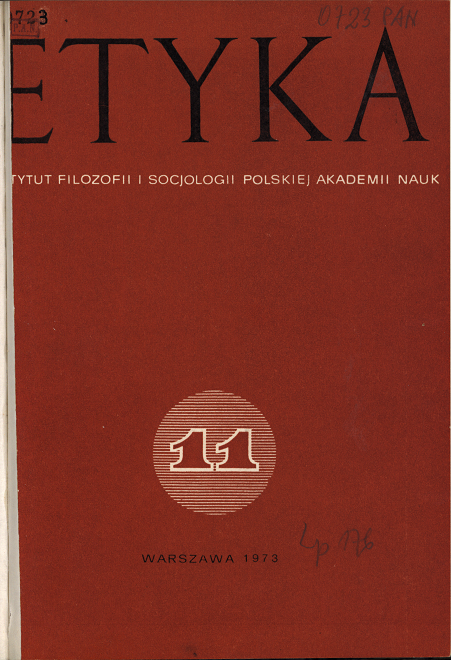Współzależność analizy etycznej i etyki
Abstract
This paper is concerned with the interrelationship between ethical analysis (metaethics) and normative ethics. It is argued that the two cannot be divorced logically and that their separation explains in large part why analytical ethical theory has so little of relevance to say to live moral issues. Two of the bases of the prevailing logical separation of the inquiries are examined critically: first, a de jure basis in which the separation is defended on theoretical grounds, e.g. by intuitionists, emotivists and prescriptivists, and second, a de facto basis in which we find a separation in practice that results from using analytical techniques borrowed from other areas in philosophy (viz. epistemology) that are inappropriate for ethics, e.g. by ordinary language philosophers. The prevailing conception of ethical analysis is criticized on the grounds that both the pre-analytical data and the aims of ethical analysis are sui generis and not to be compared to the data and aims of the other kinds of logical analysis. Problems like ethical relativism, moral dilemmas and akrasia cannot be analysed separately, but are part of the given logical and conceptual analysis of ethics.Downloads
Published
Issue
Section
License
Works published in ETYKA are available under the Creative Commons Attribution No Derivatives 4.0 International Licence (CC BY-ND), which entails acknowledgement of authorship without derivative works. Under this licence, Authors keep their copyrights and agree that their works can be used again legally for any purpose, including commercial ones, except for the creation of derivative works, without the need to obtain previous consent of the Author or publisher. The articles can be downloaded, printed, copied and disseminated; under the condition that the authorship is indicated accordingly, together with the place of original publication. The Authors preserve their copyrights to the above-mentioned works without any limitation whatsoever.



